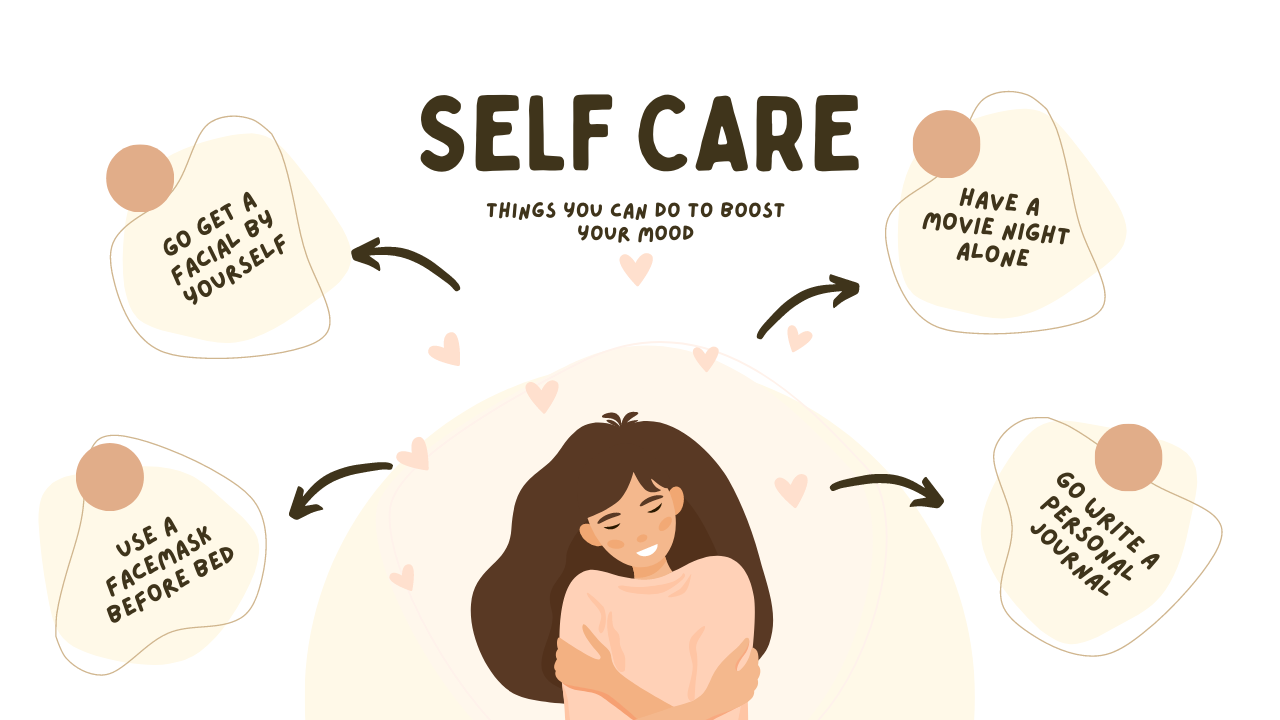Mental Health and Self-Care: Building a Routine for Wellbeing

In today’s fast-paced and often stressful world, taking care of our mental health has never been more important. Mental health is just as essential as physical health, and incorporating self-care into your routine can help promote emotional balance, reduce stress, and enhance your overall wellbeing. The concept of self-care goes beyond just pampering yourself – it’s about making intentional choices to nurture your mind, body, and soul. In this blog, we will explore how to build a sustainable routine for mental wellbeing and why it’s crucial for leading a balanced life.
Understanding Mental Health and Self-Care
Mental health encompasses emotional, psychological, and social well-being. It affects how we think, feel, and act, and it influences how we handle stress, relate to others, and make choices. Good mental health allows us to manage life’s ups and downs effectively, maintain positive relationships, and engage in productive activities.
Self-care, on the other hand, refers to activities and practices that individuals engage in to maintain or improve their mental health. It involves both preventive measures (such as stress reduction and relaxation) and corrective actions (like seeking professional help when needed). Self-care is not a luxury – it’s a necessity for maintaining mental health and preventing burnout.
Why a Self-Care Routine is Essential
Creating a self-care routine provides structure and intention, allowing you to prioritize your mental health amidst the chaos of everyday life. Regular self-care can:
- Reduce Stress: Taking time for yourself can help you relax, recharge, and manage stress more effectively. Stress management techniques, such as mindfulness or deep breathing, can calm your nervous system and promote mental clarity.
- Boost Mood: Consistent self-care activities can increase the production of “feel-good” hormones like serotonin and dopamine, leading to improved mood and emotional resilience.
- Improve Productivity: A balanced routine that includes self-care will help you stay focused, energized, and motivated throughout the day, improving your productivity at work or in your personal life.
- Enhance Emotional Wellbeing: Self-care practices can help you build emotional intelligence, improve self-awareness, and foster better relationships with yourself and others.
Steps to Building a Self-Care Routine
- Start Your Day with Mindfulness
The way you begin your day sets the tone for everything that follows. Instead of rushing out of bed and diving into work or responsibilities, take a moment to center yourself with mindfulness.
- Practice Deep Breathing: Start with a few minutes of deep breathing exercises. Inhale for a count of four, hold for four, and exhale for four. This simple technique can calm your nervous system and help you start the day grounded.
- Gratitude Journal: Writing down three things you’re grateful for every morning can shift your focus from stress to positivity. Gratitude has been shown to improve mood, reduce anxiety, and promote mental resilience.
- Set Intentions for the Day: Setting a positive intention for the day can help you stay focused and motivated. Whether it’s to be more present or to accomplish a specific task, having a clear purpose can boost your sense of direction.
- Incorporate Physical Activity
Exercise is one of the best ways to improve mental health. Physical activity releases endorphins, which are natural mood boosters, and can help reduce symptoms of anxiety and depression.
- Find What You Enjoy: Whether it’s yoga, running, dancing, or strength training, choose an activity that brings you joy and fits your lifestyle. Exercise doesn’t need to be intense to have a positive impact – even a short walk outside can lift your spirits.
- Consistency is Key: Aim to incorporate physical activity into your routine at least three to five times a week. You don’t have to overexert yourself, but consistency will help you build a healthy habit.
- Prioritize Sleep and Rest
Sleep is essential for mental health. Lack of sleep can lead to irritability, difficulty concentrating, and increased stress. A regular sleep schedule helps your brain and body recharge, allowing you to face the day with energy and clarity.
- Create a Relaxing Bedtime Routine: Set a routine that helps you wind down before bed. This could include reading a book, taking a warm bath, or practicing relaxation techniques like progressive muscle relaxation. Avoid screens and electronics at least 30 minutes before bed, as the blue light emitted can interfere with sleep.
- Set a Sleep Schedule: Try to go to bed and wake up at the same time every day, even on weekends. A consistent sleep schedule helps regulate your body’s internal clock and improves the quality of your sleep.
- Nourish Your Body with Healthy Food
What you eat plays a significant role in your mental health. Consuming a balanced diet rich in nutrients, vitamins, and minerals helps your brain function optimally, supporting better mood and cognitive performance.
- Eat Whole, Nutrient-Dense Foods: Include plenty of fruits, vegetables, whole grains, lean proteins, and healthy fats in your meals. Omega-3 fatty acids, found in foods like fish, nuts, and seeds, are particularly beneficial for brain health.
- Stay Hydrated: Dehydration can negatively impact your mood and energy levels. Make sure to drink plenty of water throughout the day to stay hydrated and energized.
- Limit Processed Foods: Highly processed and sugary foods can cause energy crashes and mood swings. Reducing your intake of these foods can help maintain a stable mood and improve overall mental wellbeing.
- Make Time for Hobbies and Social Connection
Self-care isn’t just about physical health – it’s also about nurturing your passions, relationships, and sense of connection to others.
- Engage in Hobbies: Make time for activities that bring you joy and fulfillment, whether it’s painting, gardening, reading, or cooking. Doing something creative or fun can provide a sense of purpose and help you unwind.
- Socialize and Connect: Strong social connections are vital for mental health. Make an effort to nurture your relationships, whether it’s spending quality time with family, friends, or engaging in a community group. Social support provides emotional stability and helps you feel grounded.
- Practice Mindfulness or Meditation
Incorporating mindfulness or meditation into your daily routine can significantly improve your mental health by promoting relaxation, reducing stress, and enhancing focus.
- Start Small: Begin with just 5 to 10 minutes of mindfulness or meditation each day. Focus on your breath, sensations in your body, or positive affirmations to quiet your mind and reduce anxiety.
- Use Apps: Apps like Headspace, Calm, and Insight Timer can guide you through mindfulness and meditation practices, making it easier to build a routine.
Conclusion: Self-Care is a Lifelong Journey
Building a self-care routine is a powerful tool for maintaining mental health and overall wellbeing. By prioritizing activities that nurture your mind, body, and soul, you can reduce stress, enhance emotional resilience, and lead a more balanced and fulfilling life. Remember, self-care is not a one-time fix – it’s an ongoing process that requires time, intention, and self-compassion. Start small, be consistent, and over time, you’ll cultivate a routine that helps you thrive in all areas of your life.



